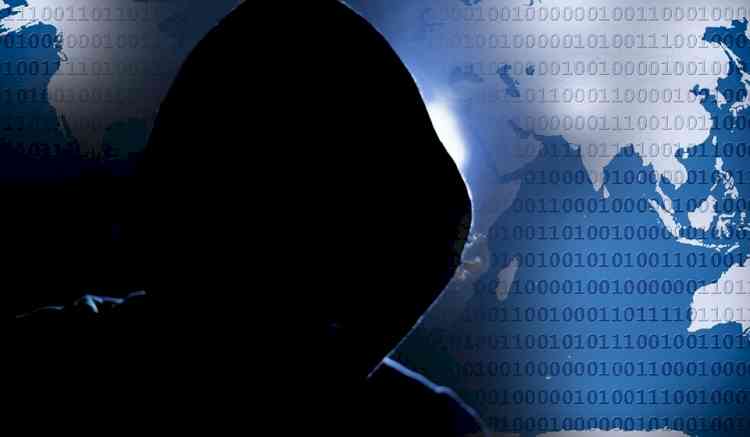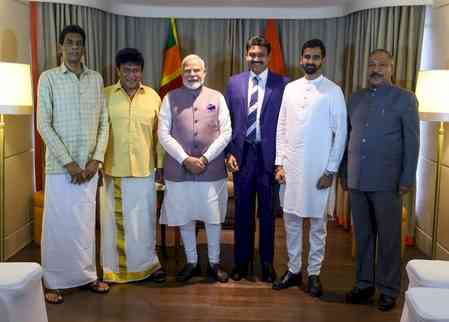New Zealand indicates joining US-led group to guard itself from China-sponsored harmful activities

New Delhi: Hackers from China are often accused of cyberattacks on government websites and vital installations, especially when there is a diplomatic row or clash.
This time, however, the accused is the Beijing government. New Zealand has left no ambiguity when it charged the Chinese government for its direct involvement in "malicious" cyber activities. It openly called out the Chinese Ministry of State Security (MSS).
"Chinese state-sponsored actors were responsible for the exploitation of Microsoft Exchange vulnerabilities in New Zealand in early 2021," said a release issued by the New Zealand government.
Responding to the allegation, China has expressed "dissatisfaction" and accused New Zealand of "Cold War mentality". With the new dispute, China has been embroiled in disputes with every major player in the Asia-Pacific region.
New Zealand's Minister for Government Communications Security Bureau (GCSB), Andrew Little, minced no words while indicting Beijing when he said the cyberattack was carried out by "Chinese state-sponsored actors".
"We call for an end to this type of malicious activity, which undermines global stability and security," said Little while demanding "appropriate action" from Beijing.
A senior minister slamming China directly and invoking global security can be interpreted in two ways. First, the damage that China-sponsored hackers have caused to New Zealand's institutes and overall governance system. Second, it is trying to align with its traditional allies as did Australia, which refused to give in to economic coercion by China.
In the recent past, groups like Five Eyes, SCRI (Supply Chain Resilience) and QUAD (Quadrilateral Security Dialogue) have made China wary as they intend to question China's hegemony in the Asia-Pacific.
Interestingly, New Zealand had criticised Five Eyes - an intelligence-sharing alliance - for taking on China.
However, the latest development of New Zealand openly criticising China is well in coordination with the statements issued by Five Eyes, European Union, Japan and NATO.
The statement from New Zealand came soon after the US condemned China for "malicious" cyberattacks, which posed a major threat to the country's "economic and national security".
David Capie, Director of the Centre for Strategic Studies at Victoria University, said the statement by New Zealand is a clear manifestation of differences with China.
"This time you've got a senior government minister fronting the message -- not an official," Capie said.
"The language in the statement is much sharper -- China is accused of �undermining global security and stability', and the condemnation is being delivered along with a long list of partners," he added.
The shift in New Zealand's geopolitical policy was clear after Prime Minister Jacinda Ardern said her country would embrace a larger ecosystem of nations in the Indo-Pacific as the wider home for New Zealand.
Ardern also took a dig at China's one-upmanship in the region, saying, "We also have serious concerns over the situation in the South China Sea, including artificial island-building, continued militarisation, and activities which pose risks to freedom of navigation and overflight."
Many small nations in the South China Sea region have challenged Beijing's expansionist behaviour, which has led to conflicts over ownership of small islands and territories in the sea.
Ardern's comment can be seen as New Zealand has joined the bandwagon of the western block that seeks to counter China in its own background.
Things started falling apart after New Zealand decided to speak against the genocide in China's north-western Xinjiang province.
"We need to acknowledge that there are some things on which China and New Zealand do not, cannot, and will not agree. We have commented publicly about our grave concerns regarding the human rights situation of Uyghurs," Ardern had said in May.
The Chinese government is accused of carrying out human rights abuses in the form of abduction, forced sterilisation, and extra-judicial killings of minority Uyghur Muslims in Xinjiang.
Even the opposition party too has supported the Ardern-government though the widening rift between New Zealand and China is going to have a negative economic impact.
National Party leader Judith Collins said, "China is our major trading partner. But we can't just lie down and let cyberattacks occur against our health organisations, government agencies and businesses, and sit there and say nothing."
Under the Xi Jinping rule, authoritarianism has increased, and the Beijing government seeks to achieve dominance and total control over its population as well as other countries.
New Zealand must have got the taste of it. It appears that New Zealand has decided to join the US-led anti-China bandwagon to protect itself against harmful Chinese activities. And the recent cyber-attack gave it a reason to do so.


 IANS
IANS 








